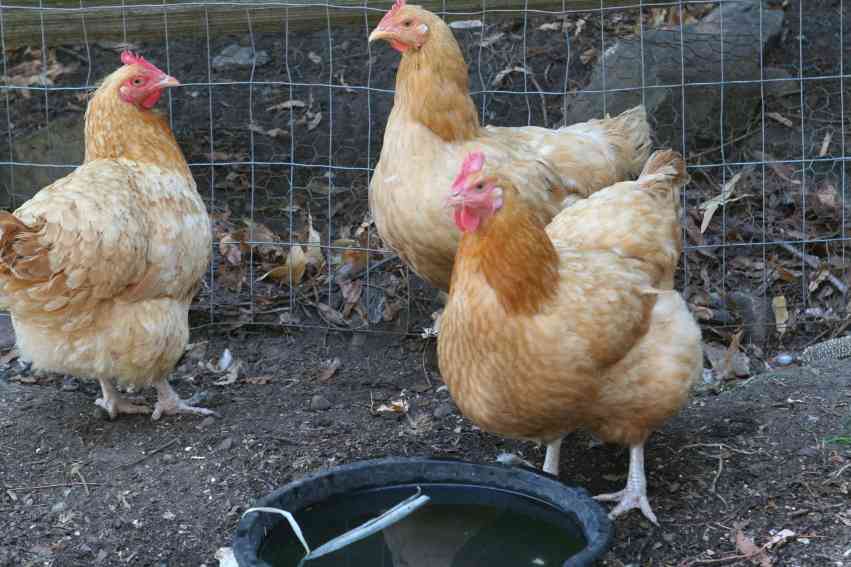Raising chickens brings joy and fresh eggs. However, you should be prepared for quite a bit of mess and unpleasant smells that can ruin the fun.
Cleaning your chicken coop regularly and keeping it odor-free can be managed with a little effort and strategy.
To eliminate odors in your chicken coop, ensure proper ventilation, keep bedding dry, and clean it regularly by removing droppings and changing bedding.
Agricultural lime is used to neutralize odors, and fresh herbs such as lavender are added to provide a pleasant aroma. Enzyme treatments also help break down waste and control bacteria, keeping your coop fresh and healthy.
In this article, we will list 5 effective ways to get rid of the smell in the chicken coop.
Why does my chicken coop need to smell good?

Keeping the chicken coop odor-free is important not only for the owner’s comfort, but also for the health and well-being of the chickens. Here’s why:
Prevents respiratory problems: Ammonia that accumulates from chicken waste can have a negative effect on your chicken’s respiratory system. Long-term exposure can cause serious symptoms such as bronchitis and other infections. Reduce Pests and Flies: Smelly sheds attract flies, mites, and other pests that can infest your flock and harm your health. Improved egg quality: A clean chicken house means a clean nesting area, which helps maintain egg quality and cleanliness. Keeps you happy: Let’s be honest, spending time with your chickens is more enjoyable when the environment is full of fresh, inviting scents.
How can I make my chicken coop smell better?
A fresh-smelling chicken coop not only keeps your chickens comfortable, but also ensures a healthier environment for them and you.
Chickens are inherently finicky creatures, and without proper upkeep, your chicken coop can quickly become a breeding ground for bacteria and pest odors.
But maintaining a pleasantly scented coop doesn’t have to be a tedious task. It’s all about consistent care and some smart strategies.
1. Circulate the air inside the shed
Proper airflow is one of the most important factors when it comes to reducing odors in your chicken coop. Stagnant air traps ammonia gas from chicken waste, creating an unpleasant odor and potentially harmful environment.
Install a ventilation system: Make sure your shed has a vent near the roofline so hot air laden with ammonia can escape. An air intake near the bottom of the coop helps bring in fresh air. Use a fan: If your shed is in an enclosed area or doesn’t have a lot of natural airflow, you can improve circulation by using a small battery-powered or solar fan. Place your shed strategically: If possible, place your shed in an area with natural ventilation. Avoid confined spaces and low-lying areas where air can accumulate. Winter considerations: Ventilation is important, but in cold weather use baffles or adjustable ventilation covers to control airflow and avoid drafts without cooling the flock.
Good ventilation is a fundamental step to keeping your chicken coop smelling fresh while promoting your chickens’ respiratory health.
2. Remove excess water and moisture
Moisture is a major cause of odor and bacterial growth. If your bedding gets wet, has spills, or has poor drainage, it can quickly develop an odor.
Waterproof your shed: Regularly inspect the roof and walls for leaks. Repair damage to prevent water from entering during rainy weather. Use spill-proof waterers: Chickens are notorious for knocking over water containers. Invest in a spill-proof or hanging water dispenser to minimize messes. Clean wet areas immediately: If you notice wet bedding or standing water, remove it immediately and replace it with dry material. Improve drainage: For in-ground sheds, ensure proper drainage to avoid water accumulation. You can raise the shed a little higher or put gravel underneath it to keep the area dry.
Keeping your coop dry will not only reduce odors but also prevent the growth of harmful bacteria and mold.
3. Clean regularly
Regular cleaning is essential to keep your chicken coop smelling fresh. The more consistent it is, the less likely it is that an odor will develop.
Daily spot cleaning: Remove droppings from high-traffic areas such as nest boxes and perches. This prevents buildup and reduces the chance of odors. Weekly cleaning: Change soiled bedding, sweep out debris, and scrub feeders and waterers with warm, soapy water. Seasonal deep cleaning: Give your coop a deep clean every few months. Remove all bedding, clean all surfaces with a mild disinfectant, and allow the coop to air dry before adding new bedding. Use the deep litter method (optional): If you want to clean less often, the deep litter method allows you to add new bedding on top of the old and compost it. Stir regularly to reduce odor and replace completely every few months.
Consistent cleaning will keep ammonia levels low, creating a healthier space for your chickens.


4. Place fresh herbs in nesting and sleeping areas
Herbs are a natural, aromatic way to improve the smell of your chicken coop while providing additional benefits to your flock.
Best herbs to use: Mint, lavender, rosemary, oregano, and thyme are great choices. Not only does it smell good, but it also has antibacterial, antifungal, and insecticidal effects. Directions: Scatter fresh or dried herbs inside the hive or along the coop floor. For best results, update your herbs weekly. Other benefits: Some herbs, such as oregano, boost your chicken’s immune system, and lavender promotes a calm atmosphere.
Adding herbs is an easy and cost-effective way to keep your coop smelling fresh and improve your chickens’ overall environment.
5. Use enzyme treatment
Enzyme cleaners are powerful tools for eliminating the root cause of chicken coop odors.
Enzyme treatments contain natural enzymes that break down organic waste, such as ammonia from feces, rather than masking odors. Remove visible waste and bedding. Spray the coop floor, walls, and nest box with an enzyme cleaner. Depending on the product instructions, let it sit for a few minutes before wiping or rinsing. Allow the treated area to dry before adding new bedding.
Safe and Effective: Look for products specifically designed for animal enclosures to ensure they are non-toxic and safe for chickens.
Enzyme cleaners are a great addition to your shed maintenance routine as they target the source of the odor.
Why should I use lime in my co-op?
Lime is a great tool for keeping your chicken coop clean and odor-free. Neutralizes the ammonia odor caused by the decomposition of chicken manure, creating a fresher, healthier environment.
Ammonia buildup can cause respiratory problems in chickens, so controlling ammonia is essential for chicken health.


Lime also helps reduce bacteria, fungi, and parasites. Its alkaline properties inhibit the growth of harmful microorganisms and promote a more sanitary shed.
Additionally, lime absorbs moisture, keeping bedding dry and inhibiting the growth of mold, which can cause unpleasant odors and health risks.
Using lime also makes cleaning the shed easier. By preventing odor and moisture build-up, your coop will stay fresher for longer and require less frequent deep cleaning.
It also helps deter pests such as flies and mites that are attracted to damp and dirty environments.
If you use lime, choose agricultural lime (calcium carbonate) that is safe for chickens. Avoid slaked lime, which can irritate the skin and respiratory system.
Sprinkle a thin layer of agricultural lime on the floor during regular cleaning and cover it with fresh bedding before bringing the chickens home.
Incorporating lime into your chicken coop maintenance is an affordable and easy way to keep your chickens happy and healthy while keeping your coop smelling pleasant.
How to get rid of ammonia smell in chicken coop?
To eliminate ammonia odor in your chicken coop, focus on improving ventilation and keeping the area dry. Adding vents or fans will ensure proper air circulation, remove trapped ammonia gas, and maintain a fresher environment.
Moisture is the main cause of ammonia buildup, so immediately replace wet bedding with absorbent material, such as pine shavings.
Regular cleaning is also important. Scoop feces daily and change bedding weekly to prevent waste buildup.
Another effective solution is to use agricultural lime, which neutralizes the ammonia in the shed floor. Be sure to use agricultural lime, as slaked lime can be harmful to chickens.
When using the deep litter method, stir the bedding frequently to promote breakdown and minimize ammonia buildup. Proper management of these factors will help keep your coop fresh and safe for your flock.
conclusion
A fresh-smelling chicken coop not only looks great, it also creates a safe and healthy environment for your flock.
Keep the coop odor-free and comfortable for both owners and chickens by circulating air, removing moisture, cleaning regularly, using natural herbs, and applying enzyme treatments and lime. You can.
Remember that prevention is the key to success. Regular maintenance and a few simple strategies can make a big difference. Your chickens (and your nose!) will thank you.


Khaja Moinuddin, a computer science graduate, enjoys gardening and homesteading. Join us on this blog where he shares his experiences with home growing, gardening, and composting.





